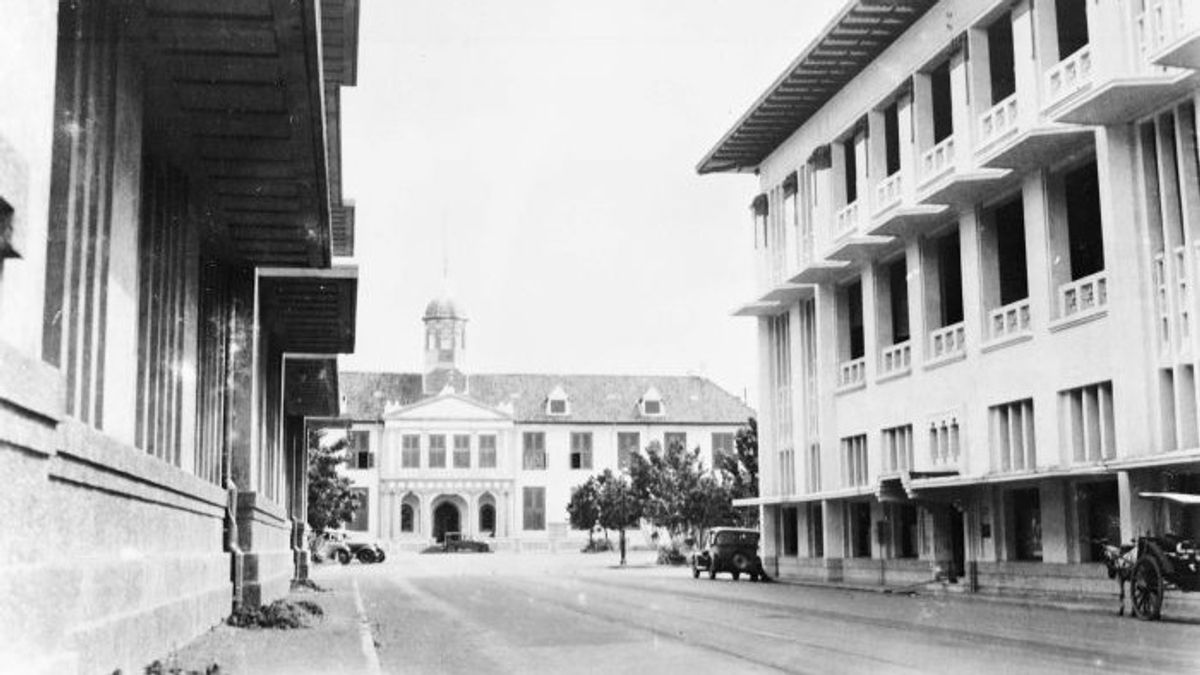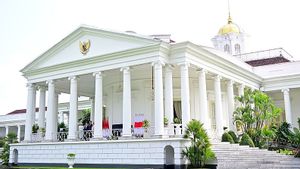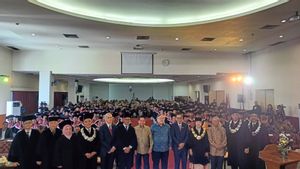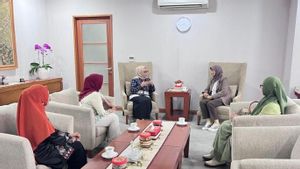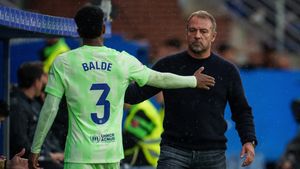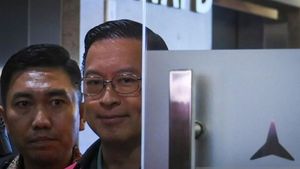JAKARTA - Sunda Kelapa, Jayakarta, Batavia. So often Jakarta changes its name. Among these names, Batavia is the most famous. Since being conquered by the Jayakarta area in 1619 by the Dutch trading partner, VOC, Batavia has become the most strategic trading center in Southeast Asia.
"The strategic location of (Batavia) made these two colonies the center of their government by ignoring the fact that Batavia's climate was perhaps the worst in the world," wrote Adam Smith, quoted by Thomas Stamford Raffles in his masterpiece, The History of Java (1817).
The rapid trade in Batavia made people forget that this city was built from the rubble of the ruins of the Prince Jayakarta territory. All buildings, be it houses to mosques were burned and destroyed without remains.
Then, on top of the ruins, the two-time VOC Governor-General (1619-1623 and 1627-1629) Jan Pieterszoon Coen built a new, bigger fortress. Over the next few years, Coen built a small Dutch town. It is called that because of its architecture that follows the style of the ancestral country, complete with canals and bridges. This development marked the beginning of the initial phase of Dutch colonialism over Indonesia.

There are at least four forces fighting over the territory belonging to Pangeran Jayawikarta, Jayakarta. The four forces are the Netherlands, England, Banten, and the troops of Pangeran Jayawikarta himself. Of the many foreign powers, the Company was the most shrewd. They are able to hide their desire for power. Coming as friends, the Dutch made an agreement with Pangeran Jayawikarta.
The signing of the agreement between the VOC and Pangeran Jayawikarta took place in 1610. The VOC won the hearts of the local rulers. In the book Batavia Kota Hantu (2010), Alwi Shahab explains, in one of the terms of the agreement, the Jayakarta party allowed the Dutch to build warehouses and collect wood for the construction of their ships in Jakarta Bay.
Other intentions can be read from there. About the Dutch desire to monopolize the region's trade. This is in accordance with the political program written by Coen as a youth. Coen wrote his political program for two reasons. First, that trade with the east was necessary for the welfare of the Dutch Republic. Second, the Dutch had the legal right to continue this trade, even monopolizing trade in many places.
Coen also secretly built a fort in 1617. Prince Jayawikarta caught the sight of the fort. He admitted that he was not happy with the Dutch character, so the Prince asked British help to attack the VOC fortress.
"This is an open war. Eleven British ships patrolled the Jayakarta Pier and threatened to cut off all communications with the outside world. With his seven ships, Coen fought them for three hours. Then he decided to temporarily withdraw from a superior enemy, "said Bernard HM Vlekke in the Nusantara book (1959).

Coen also retreated to Banda, Maluku to mobilize more assistance in facing the two forces. After Coen's departure, the Dutch fortress miraculously survived. However, this was not because of the heroism of the Dutch people, but because the British and the prince Jayawikarta, respectively, wanted to control the fort. Meanwhile, the Sultan of Banten did not want to let one of them have it.
In a feeling of frustration, the Dutch garrison almost gave up the Fort to Prince Jayakarta. Later, Banten troops prevented him so that the Jayakarta area was captured by the Sultanate of Banten. As a result, Prince Jayakarta was expelled from his own territory. Not only that, the expulsion of Pangeran Jayakarta made the British move regularly because they were more concerned with settlements and their belongings in the Port of Banten.
“This gave the Dutch garrison new courage. And between hours of prayer and nights of revelry with wine and women, they vow solemnly to defend the fortress as long as God allows, ”added Vlekke.
After making the Brave decision, the new officers realized that the Citadel had no name. Then, all the members of the garrison immediately met on March 12, 1619. The meeting agreed on the name of the fort: Batavia. "Thus the origin of the City of Batavia is far from its glory."
When Coen returned from Banda with reinforcements on 29 May 1916, Coen immediately led a thousand troops to attack the Sultanate of Banten. Due to the superiority of weaponry, the attack only killed one Dutch troop. The city of Jayakarta was conquered.
[/ read_more]
The origin of the name Batavia

The victory turned out to be a disappointment to Coen. His disappointment was because he saw the name "Batavia" on the walls of the fort. In fact, Coen wanted to name the Citadel after the name of his hometown, Hoorn. At that time, the Dutch still upheld a sense of provincialism, in which every area captured was immediately named by the area in which they were born.
Coen is not out of his mind. Coen then ordered to build a new, bigger fortress. He wanted to name the fortress "Nieuw Hoorn". However, it didn't work. As explained by Adolf Heuken SJ in the book Historical Places in Jakarta (2007), the VOC leadership council called Heren Zeventien preferred the name Batavia.
“They named Batavia in memory of the Batavier tribes, the ancestors of the Dutch nation. Since then, Jayakarta has been called Batavia for more than 300 years, ”concluded one important figure in the writing of Jakarta history, Adolf Heuken.
Even though it was gone, Coen's ambition for Batavia even today is still visible on the dull marble at the Jakarta Wayang Museum. Goenawan Mohamad in his writing in Tempo Magazine entitled JPC (2016), mentions that the stone was clearly engraved with a Dutch writing:
Die Stichter Van Batavia
Jan Pieterszoon Coen
In 1634
This writing means that the builder of Batavia, Jan Pieterzoon Coen, was buried in 1634. It was through his headstone that people would understand Coen's ambition to seize Jayakarta. What's more, the motto at that time: Don't lose hope, don't forgive your opponent, because we are with God. "
[/ read_more]
The English, Chinese, Japanese, Arabic, and French versions are automatically generated by the AI. So there may still be inaccuracies in translating, please always see Indonesian as our main language. (system supported by DigitalSiber.id)
